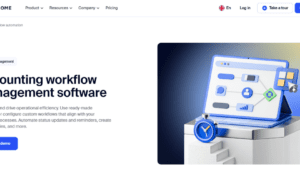Inflation, the rate at which the general level of prices for goods and services rises, eroding purchasing power, has become a pressing issue in the United Kingdom. The current state of UK inflation is profoundly impacting the cost of living for residents, creating significant financial strain on households and businesses alike. In recent months, the UK has experienced a notable surge in inflation rates, leading to increased prices across a wide range of goods and services. This article explores the current state of UK inflation, the contributing factors, its effects on individuals and businesses, strategies for managing expenses, and the role of government policies.
The State of UK Inflation and Its Impact on Cost of Living
As of mid-2024, the UK inflation rate had surged to levels not seen in decades. According to the Office for National Statistics (ONS), the Consumer Prices Index (CPI) has consistently exceeded 5% over the past year, with some months seeing inflation rates as high as 7%. This sharp increase in inflation has led to a corresponding rise in the cost of living for UK residents. Essential items such as food, fuel, and housing have become significantly more expensive, placing immense pressure on household budgets.
Factors Contributing to the Rise in Prices of Goods and Services
Several factors have contributed to the rise in prices of goods and services in the UK:
Supply Chain Disruptions: The COVID-19 pandemic severely disrupted global supply chains, causing delays and shortages in the production and delivery of goods. These disruptions have persisted, leading to increased costs for businesses and, consequently, higher prices for consumers.
Increased Demand: As the UK economy recovers from the pandemic, there has been a surge in consumer demand. This increased demand, coupled with supply chain constraints, has driven prices upward.
Global Economic Conditions: Rising commodity prices, particularly for oil and natural gas, have contributed to higher costs for transportation and production. Additionally, geopolitical tensions and trade disputes have exacerbated these issues.
Labor Market Pressures: Labor shortages in key industries, such as transportation and hospitality, have led to increased wages, which are often passed on to consumers in the form of higher prices.
Statistics on Current Inflation Rate and Comparison to Previous Years
As of July 2024, the UK’s inflation rate remains stable at 2.0%, consistent with the previous month. This stability marks a significant decrease from the 7.9% inflation rate recorded a year ago, demonstrating a substantial reduction in inflationary pressures over the past 12 months. This steady rate aligns closely with the Bank of England’s target of around 2%, indicating effective management of inflation through monetary policies and economic adjustments;
| Year | Average CPI Inflation Rate (%) |
| 2020 | 0.85 |
| 2021 | 2.5 |
| 2022 | 4.2 |
| 2023 | 5.4 |
| 2024 | 2.0% (As of time of writing) |
The Consumer Prices Index including owner occupiers’ housing costs (CPIH) also reported an annual increase of 2.8% in June 2024, maintaining the same rate as in May 2024. This consistency is a result of balanced influences across various sectors. Notable upward contributions to the CPIH came from restaurants, hotels, and transport, while significant downward contributions were observed in clothing and footwear prices.
These trends suggest that the UK’s efforts to stabilize the economy are bearing fruit, with supply chains normalizing and global commodity prices easing. The upcoming release of inflation data in mid-August 2024 is expected to provide further insights into the ongoing inflation trends and economic stability.
Effects of Inflation on Individuals
Inflation has numerous effects on individuals, primarily through higher household expenses. The rising cost of essential goods such as food, fuel, and housing has forced many UK residents to make difficult financial choices. For example, families are cutting back on discretionary spending, delaying major purchases, and seeking ways to reduce their overall expenses. Additionally, inflation erodes the value of savings, reducing the purchasing power of money held in savings accounts.
Budget adjustments have become a necessity for many households. For instance, some families are switching to cheaper brands, shopping in bulk, and utilizing discount stores to manage their grocery bills. Others are reducing energy consumption and seeking more affordable housing options to mitigate the impact of rising utility and rental costs.
Impact of Inflation on Businesses
Businesses are also feeling the effects of inflation, particularly through increased production costs. Higher prices for raw materials, transportation, and labor have squeezed profit margins. Many businesses are faced with the challenge of deciding whether to absorb these costs or pass them on to consumers. This dilemma can lead to difficult pricing decisions, potentially resulting in lost customers if prices are raised too much.
Furthermore, small businesses, which often operate on thinner margins, are particularly vulnerable. They may struggle to compete with larger firms that can leverage economies of scale to manage costs more effectively. The increased uncertainty and volatility in prices also make long-term planning more difficult for businesses.
Strategies for UK Residents to Manage Expenses During High Inflation
During times of high inflation, UK residents can adopt several strategies to manage their expenses:
Budgeting and Planning: Creating a detailed budget helps households track their income and expenses, identify areas where they can cut back, and plan for future financial needs.
Smart Shopping: Comparing prices, using coupons, and taking advantage of sales can help reduce grocery and household expenses. Buying in bulk and opting for generic or store-brand products can also yield significant savings.
Energy Efficiency: Reducing energy consumption through simple measures such as using energy-efficient appliances, insulating homes, and monitoring energy usage can lower utility bills.
Transportation Savings: Carpooling, using public transportation, and maintaining vehicles properly can help reduce fuel costs.
Financial Products: Exploring high-yield savings accounts, inflation-protected securities, and other financial products that offer better returns or protection against inflation can help preserve purchasing power.
Steps for Businesses to Mitigate the Effects of Inflation
Businesses can take several steps to mitigate the effects of inflation:
Cost Management: Identifying areas where costs can be reduced without compromising quality is crucial. This might involve renegotiating contracts with suppliers, seeking alternative suppliers, or improving operational efficiencies.
Pricing Strategies: Businesses should consider adopting dynamic pricing strategies that allow for adjustments based on changing costs. Offering tiered pricing or value-added services can also help maintain profitability.
Inventory Management: Efficient inventory management can reduce holding costs and minimize the impact of price fluctuations. This includes maintaining optimal stock levels and using just-in-time inventory systems.
Innovation and Diversification: Investing in research and development to create innovative products or services can provide a competitive edge. Diversifying product lines or entering new markets can also reduce dependency on single revenue streams.
Employee Training and Retention: Investing in employee training and development can improve productivity and reduce turnover, helping to manage labor costs more effectively.

Government Policies and Actions Affecting Inflation Rates
Government policies and actions play a crucial role in influencing inflation rates and overall economic stability. Monetary policy, controlled by the Bank of England, is one of the primary tools used to manage inflation. By adjusting interest rates and engaging in quantitative easing or tightening, the central bank can influence borrowing, spending, and investment patterns.
Fiscal policy, including government spending and taxation, also impacts inflation. For example, increased government spending can stimulate demand, potentially leading to higher inflation, while tax increases can reduce disposable income and demand, helping to control inflation.
Additionally, regulatory policies affecting labor markets, trade, and competition can influence inflation. For instance, policies that promote competition can help reduce prices, while those that restrict supply or increase costs can contribute to inflationary pressures.
Importance of Understanding Inflation
Understanding how inflation works and its impact on both individuals and businesses is essential for making informed financial decisions. For individuals, this knowledge can help in budgeting, saving, and investing wisely. For businesses, understanding inflation dynamics can aid in strategic planning, pricing decisions, and cost management.
Educating the public about inflation and its effects can also help manage expectations and reduce the risk of panic or irrational financial behavior. For example, during periods of high inflation, it is important for consumers to avoid hoarding goods or making impulsive financial decisions that could exacerbate economic instability.
Conclusion
In conclusion, the current state of UK inflation presents significant challenges for both individuals and businesses. The rising cost of living, driven by factors such as supply chain disruptions, increased demand, and global economic conditions, has led to higher prices for goods and services. Understanding the causes and effects of inflation is crucial for making informed financial decisions and developing strategies to manage expenses and maintain stability.
For individuals, adopting smart budgeting and shopping practices can help mitigate the impact of inflation. Businesses can benefit from effective cost management, pricing strategies, and innovation to navigate the challenges posed by rising prices. Government policies and actions play a critical role in managing inflation and ensuring economic stability.
Ultimately, finding a balance between economic growth and inflation control is essential for a stable and prosperous economy. By staying informed and proactive, UK residents and businesses can better navigate the complexities of inflation and protect their financial well-being.



































